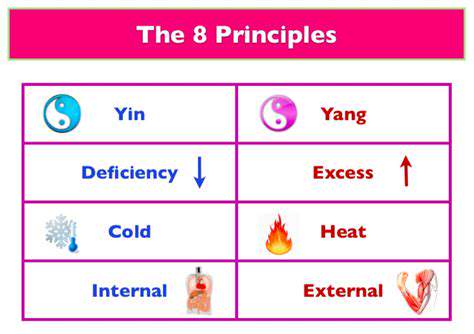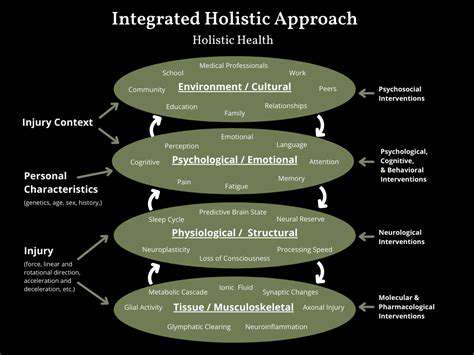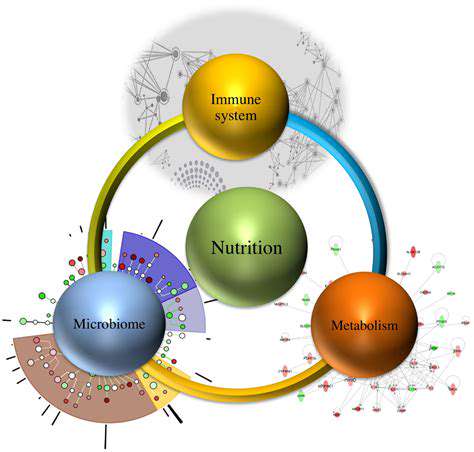Anxiety and TCM: A Holistic Treatment Approach

Traditional Chinese Medicine (TCM) Diagnosis: A Holistic Approach
Traditional Chinese Medicine (TCM) offers a unique and holistic perspective on diagnosing illness. Instead of focusing solely on the symptoms, TCM practitioners aim to understand the underlying imbalances within the body's energy system, known as Qi. This approach considers the individual's overall health, lifestyle, and environment, recognizing that these factors play a significant role in maintaining or disrupting the body's equilibrium.
By identifying the root cause of the imbalance, TCM practitioners can develop personalized treatment plans that address the individual's unique needs. This personalized approach is a key characteristic of TCM, setting it apart from many other medical systems.
Pulse Diagnosis: A Subtle Art
Pulse diagnosis is a fundamental aspect of TCM. Experienced practitioners use their fingers to feel the pulse at specific points on the wrists. Through this tactile assessment, they analyze the rhythm, strength, and quality of the pulse, gaining insight into the condition of the internal organs and the flow of Qi.
Examining the pulse allows practitioners to detect imbalances and subtle changes in the body's energy patterns. This method can reveal information that may not be apparent through other diagnostic tools.
Tongue Diagnosis: A Window to the Body's State
Tongue diagnosis is another crucial element of TCM. The tongue, according to TCM principles, reflects the state of the body's internal organs and energy flow. Practitioners carefully examine the color, shape, coating, and texture of the tongue to identify potential imbalances.
The tongue's appearance can indicate specific imbalances such as inflammation, deficiency, or heat. This visual assessment is a valuable tool for understanding the body's current condition and guiding treatment strategies.
Patient Interview and History Taking
A comprehensive patient interview is essential in TCM diagnosis. The practitioner gathers detailed information about the patient's symptoms, medical history, lifestyle, diet, emotions, and environment. This detailed history-taking process provides invaluable insights into the individual's overall health and the potential factors contributing to their current condition.
Through careful questioning, the practitioner gains a deep understanding of the individual's experience, encompassing not only physical symptoms but also emotional and psychological factors. This holistic perspective is vital to a proper diagnosis.
Observational Examination: Beyond the Physical
Observation plays a significant role in TCM diagnosis. Practitioners meticulously observe the patient's overall demeanor, posture, facial expressions, and even their breathing patterns. These observations provide further clues about the patient's condition and energy state.
Acupuncture and Other Modalities: Enhancing Diagnosis
The use of acupuncture, along with other TCM modalities, can be part of the diagnostic process. The location of points that respond to stimulation can offer clues about the body's energy pathways and imbalances. By assessing how the body reacts to these stimuli, practitioners can gain further insight into the nature of the condition.
Through a combination of these techniques, TCM practitioners aim to develop a thorough understanding of the patient's condition, and to provide targeted and personalized treatment strategies.
The first few days following a revelation of infidelity are often characterized by a profound sense of shock, disbelief, and deep emotional turmoil. Individuals experiencing this phase may grapple with a whirlwind of conflicting emotions, including anger, hurt, betrayal, and confusion. The immediate aftermath is a time when raw feelings are surfacing, and it's crucial to allow yourself and your partner the space to process these intense emotions without judgment or pressure to immediately reconcile.











